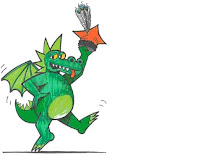Heno, heno, hen blant bach,
Heno, heno, hen blant bach,
Dime, dime, dime, hen blant bach,
Dime, dime, dime, hen blant bach.
Gwely, gwely, hen blant bach,
Gwely, gwely, hen blant bach,
Dime, dime, dime, hen blant bach,
Dime, dime, dime, hen blant bach.
Fory, fory, hen blant bach,
Fory, fory, hen blant bach,
Dime, dime, dime, hen blant bach,
Dime, dime, dime, hen blant bach.
Translation is -Tonight, tonight, dear little children,
Tonight, tonight, dear little children
Halfpenny, halfpenny, halfpenny, dear little children,
Halfpenny, halfpenny, halfpenny, dear little children.
Bed, bed, dear little children.
Bed, bed, dear little children.
Halfpenny, halfpenny, halfpenny, dear little children,
Halfpenny, halfpenny, halfpenny, dear little children.
Tomorrow, tomorrow, dear little children.
Tomorrow, tomorrow, dear little children.
Halfpenny, halfpenny, halfpenny, dear little children,
Halfpenny, halfpenny, halfpenny, dear little children.


























